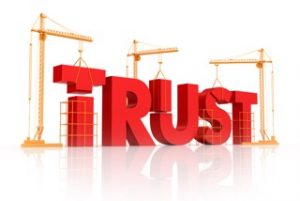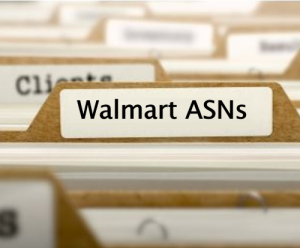In an EDLC, EDLP model, there’s absolutely no room for hidden fees and excess costs.
That’s why Stephen M. R. Covey’s analogy in his best-selling book, Speed of Trust, resonates so strongly. Covey says that a lack of trust is like a hidden tax on your business relationship, adding delay and cost to every deal. And somebody has to pay for it. In a word, trust is confidence. The opposite is distrust, or suspicion. A confident partnership is fast. A suspicious one is slow and costly.
Think for a second about all the relationships around you: spouse, mechanic, co-workers. Think about how much more efficient, accurate, and timely decisions are made when a high level of trust exists. Most of those high-trust relationships are likely undergirded by consistent, trusted behavior over time. Unfortunately, business results cannot wait for long periods while individuals struggle to establish relational footing.
The good news is that you can build trust faster and sustain it. This is especially important for long-term relationships, which aren’t transactional in nature. Trust is very important to the supplier-retailer relationship that exists between companies, and is executed between a few people.
What we see time and again is that in a transition, business results suffer. Whether the role is a new account manager, customer marketing head, logistics leader, supplier leader, buyer or merchandising leader, the results often are affected. Why?
In part, suppliers are not taking enough time to train and provide the right kind of ongoing support for their new customer facing roles doing business with Walmart (which is why we’ve launched the Soderquist Leadership Circle for Suppliers). And let’s face it; being at the front of that relationship with the Fortune 1 can be enormously stressful!
Focusing for a moment on the supplier-side of the partnership, here are some of the common scenarios that degrade trust:
- An account manager starts selling but hasn’t taken time to understand the buyer’s strategy, nor do they fully understand organizational capability to deliver.
- What seems like an agreed upon, shared commitment with a buyer or merchandising leader never comes to fruition leading to a broken commitment to internal constituents.
- An account manager is hesitant to negotiate with the customer, or internally on behalf of the customer, in a healthy way.
- An account manager goes in to sell something he or she has committed to internally but has never discussed with the buyer.
- A buyer’s numbers are down and the supplier isn’t calling to help get the business back on track.
- A big or small supplier doesn’t understand the role they play in the category and tries to be all things for all consumers.
- An account manager open-doors a more senior leader without first talking to the buyer.
Any of these scenarios sound familiar? These actions or inactions produce suspicion in relationships that add unnecessary time and cost to the business. We are interested in building trust fast, and focusing on how you accelerate it when there isn’t the luxury of time to develop a track record.
Here are five best practices for accelerating trust in key supplier relationships like Walmart :
- Understand what’s important to your partner and what they’re working to accomplish.
- Concisely communicate, without confusion, what you want to accomplish and what constraints you may have.
- Have a solid understanding of your unique role in the category or as a representative for your organization.
- Be open about your level of authority and the chain of command in your organization.
- Be willing to negotiate with internal and external relationships on behalf of your partner.
Now read these best practices once more and imagine that your business partner is also giving you a rating on each question. Like a newlywed game, your goal is to instill confidence in your business partner so that they rate you just as highly as your own self-rating.
Finally, trust isn’t a one-time event; you must continue to nurture it. This is why we’ll be continuing this conversation on accelerating trust to achieve a high-performing partnership in the first session of the Soderquist Leadership Circle for Suppliers, with special guest, Scott Huff, EVP of Merchandising Operations, Walmart US.




